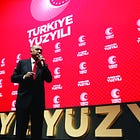The Bayraktar Complex
After turning Türkiye into a drone superpower, the Bayraktar family is building an institutional ecosystem to socially engineer a culture of technological innovation.
Selçuk Bayraktar has become the public face of Türkiye’s meteoric rise as an Unmanned Aerial Vehicle (UAV) power, joining the ranks of only a handful of nations like the US, China, Israel, and Ukraine in pioneering military drone technology. This leapfrogging strategy has enabled Türkiye to make a breakthrough in its long-held aspirations to develop a sovereign and largely autarkic military-industrial complex.
Over the past two decades, the country has gone from buyer to supplier: defence exports have skyrocketed from $2.3 billion in 2020 to more than $7.1 billion in 2024, and are on track to beat that number in 2025. Türkiye has now become the 11th largest defence industry exporter in the world. Critically, the Turkish defence industry has achieved localisation of production rates upwards of 70%, making Türkiye the least reliant it has ever been on external markets.
A significant portion of Turkish defence exports are UAVs manufactured by Baykar, the Bayraktar family company. Baykar (a portmanteau of Bayraktar Kardeşler – Bayraktar Brothers) now employs more than two thousand people in sprawling technology campuses located next to Turkish Army bases, the largest user and main client for Baykar UAVs.
Baykar’s Bayraktar TB2 UAV has become the flagship of the Turkish defence industry and has played a pivotal role on battlefields from Ukraine to Karabakh, Libya, Syria, and beyond. TB2s have also been exported to over 34 countries, including Morocco, Ethiopia, Qatar, Poland, Saudi Arabia, and Indonesia. In 2024, Baykar reported $1.8 billion in exports, with 90% of revenues coming from international sales. This represents around a quarter of Türkiye’s total defence exports.
The Bayraktar name has become synonymous with UAVs, although the TB2 is just one of many products, with more planned: combat jets like the Kızılelma (red apple), high-altitude UAVs like the Akıncı (pronounced akinji, lit. “raider”), and the upcoming TB3 – a more advanced model than the TB2 predecessor.
This success is not owed to one man alone. While Selçuk is the Chief Technology Officer (CTO) and public face of Baykar, the Bayraktar family, including Selçuk’s father and brothers, has played a crucial role in the success of their family company. Raised on the workshop floor with a missionary belief in the importance of Turkish sovereignty (backed by military power and industry), and the role that Türkiye has to play in its local region and the wider Muslim world, the Bayraktars represent the realisation of the ideals of a particular Anatolian Muslim milieu.
It is to that end that the Bayraktar family’s initiatives are now transcending UAVs. Buoyed by their success, national fame, the support of Türkiye’s President Recep Tayyip Erdoğan, and billions of dollars in revenues, the Bayraktar family is building an ecosystem of institutions in Türkiye that could loosely be called The Bayraktar Complex.
Where Baykar engineers drones, the Bayraktar Complex aims to engineer a new culture of innovation in Türkiye, in which faith, technology, and political sovereignty are intertwined. However, the roots of Baykar’s success and the mission of the Bayraktar Complex can only really be understood through the upbringing and cultural milieu of the Bayraktar family.
A Family Enterprise
Baykar Makina (Baykar Machines) was founded in 1984 in Istanbul by family patriarch Özdemir Bayraktar (1949-2021) as a subcontractor supplier of CNC machines to manufacture and sell automobile parts such as engines, pumps, and spare parts. The son of a fisherman from Trabzon, he graduated from Istanbul Technical University (ITU) with a degree in engineering.
The family matriarch, Canan, is an economist and computer programmer. She graduated from Istanbul University (IU) with a degree in business in 1971 and began her career at the Industrial Development Bank of Türkiye. Canan holds the distinction of being one of the first female computer programmers in Türkiye.
Özdemir and Canan married in 1977, and together they had three sons: Haluk Bayraktar (born in 1978), Selçuk Bayraktar (1979), and Ahmet Bayraktar (1983). The parents’ academic and professional backgrounds would deeply influence their sons, who were exposed to machine tools and software programming from a young age. As Özdemir was also an amateur pilot, they would also develop an interest in aeronautics. However, it was Selçuk, the middle child, who would turn out to be the technical prodigy.
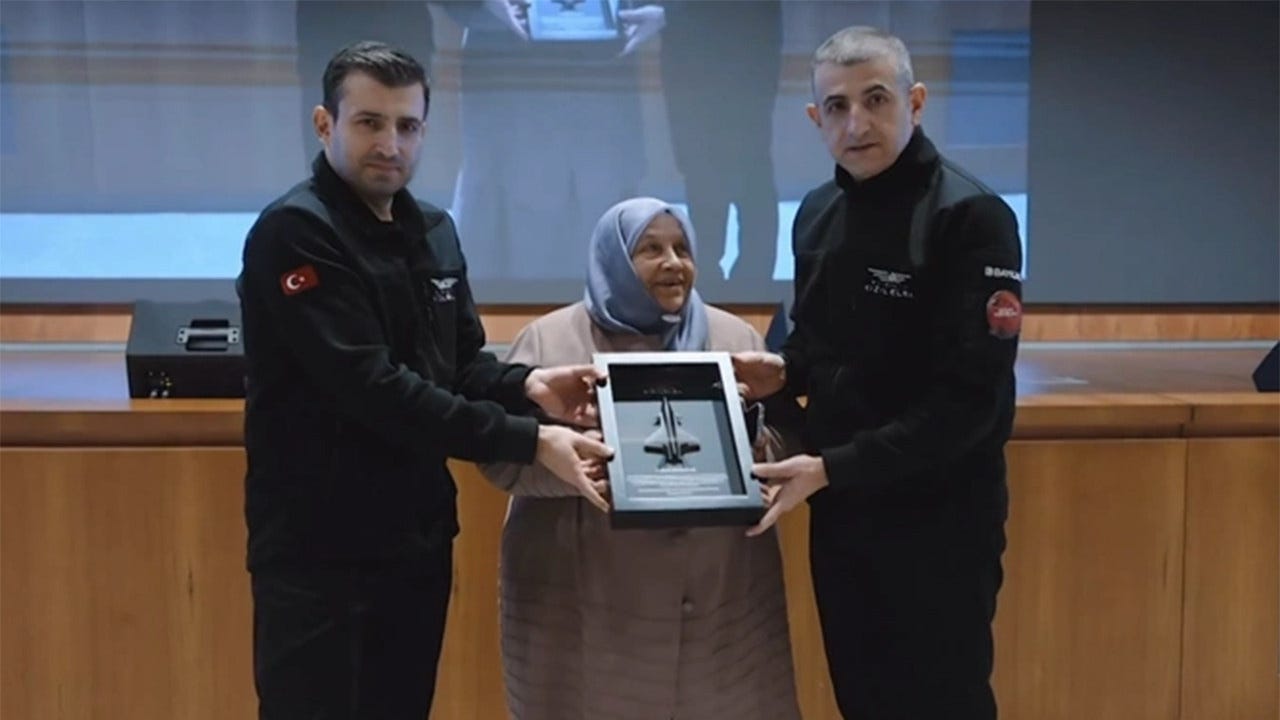
In the 1990s, Selçuk attended the elite Robert College for high school, an American-founded institution that accepts only the highest-ranking students in Türkiye’s national examinations. Although most graduates of Robert College go on to study at American universities, Selçuk remained in Türkiye to pursue a degree in electronics and communications engineering at Istanbul Technical University (ITU) in 1997, the oldest and most prestigious institution for technical education in the country. It was only after he graduated from ITU that Selçuk would go on to study in America.
Throughout his youth, Selçuk had been an amateur tinkerer with an interest in remotely-controlled aircraft that would burgeon into an obsession with emerging UAV technologies, perfectly aligning his father’s background in machine tooling, his mother’s background in software, and geopolitical currents in Türkiye and the wider world. He acted on this interest with his work at ITU, impressing academic researchers and earned him a scholarship to attend the University of Pennsylvania in 2002.
In the 1990s, Baykar had pivoted from auto parts to partnering with the Turkish military to produce defence products. By the early 2000s, Selçuk and Özdemir had developed a mutual interest in aeronautics and decided to refocus Baykar on UAV technologies. Selçuk would also go on to acquire a master’s degree in unmanned aircraft systems at Pennsylvania in 2004, where he flew two drones in formation at the Fort Benning Army base in Georgia, and would acquire another master’s degree at MIT, where he landed a radio-controlled helicopter on a wall. His advisor, Eric Feron, recalls Selçuk as “a dedicated craftsman and an observant Muslim.”
As a young student in the USA, 9/11 and the subsequent ‘War on Terror’ were a defining moment for the young Selçuk. He watched as American ‘predator drones’ were deployed in Afghanistan and Iraq, often causing great civilian casualties. Selçuk engaged in anti-war social activism on campus with other graduate students. However, unlike them, Selçuk was not content to be a mere activist. In the predator drones, he saw the challenge that American air power posed to Muslim countries, but also an opportunity. While still enrolled at MIT, he began building prototype drones on the Baykar factory floor in Istanbul.
Meanwhile, Özdemir sought to lobby the Turkish government to support Baykar’s efforts in developing UAV technologies. Here, the Bayraktar’s cultural milieu would be essential. Özdemir hailed from the Millî Görüş (National View) movement of Turkish-Islamic nationalism, pioneered by Necmettin Erbakan, a professor of mechanical engineering and Prime Minister of Türkiye in the 1990s. Erbakan emphasised the need for an ‘Islamic industrialism,’ promoting industrial production and military self-sufficiency to protect Turkish sovereignty. The Turkish invasion of Cyprus in 1974, and subsequent Western sanctions on military exports to Türkiye, critically exposed the country’s dependence on the West for its defence industry.
In 1996, Erbakan was elected Türkiye’s Prime Minister, but he was pressured to resign by the Turkish military in what was called the “first postmodern coup”, and subsequently banned from politics on the charge of threatening to violate Türkiye’s constitutional separation of religion and the state. One of his protégés, Recep Tayyip Erdoğan, would learn lessons from the coup against Erbakan and go on to win the next election in 2002.
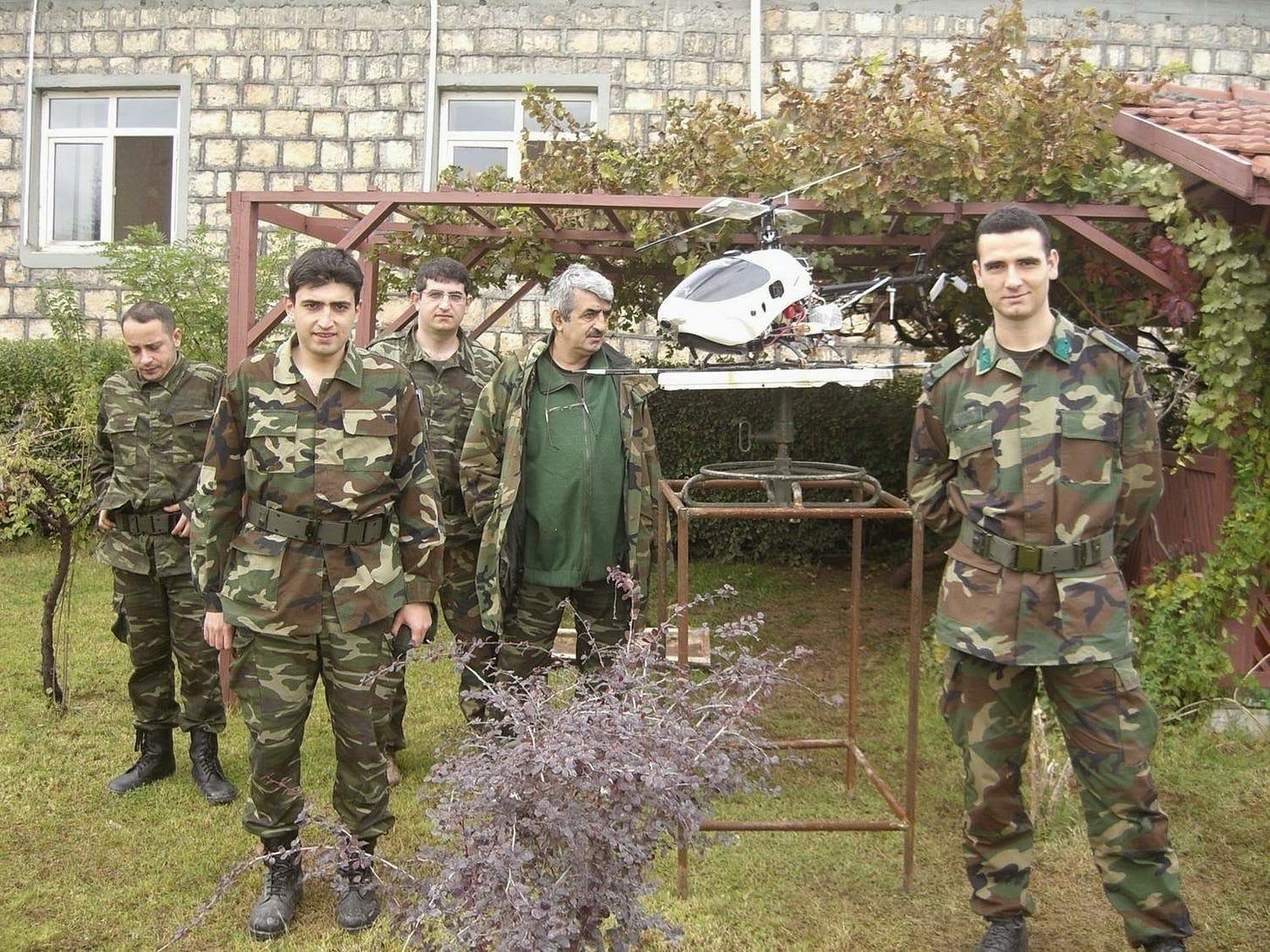
Özdemir had close relations with both Erbakan and Erdoğan (to whom Özdemir was an advisor when he was mayor of Istanbul between 1994 and 1998) and was able to secure government support for Selçuk’s drones. By the mid-2000s, Selçuk was splitting time between his studies in the USA (where he began to pursue a PhD at MIT) and embedding himself in the Turkish military, where he personally oversaw the development and test deployments of the hand-launched Bayraktar TB1 mini-UAV, amid the sub-zero temperatures and harsh mountain terrains of southeastern Anatolia.
In 2007, Selçuk dropped out of his PhD program at MIT and returned to Türkiye permanently to serve as Baykar’s CTO. Brothers Haluk and Ahmet joined as the general manager and financial manager, respectively. Patriarch Özdemir would lead design efforts.
The Sky’s the Limit
Until the 2000s, Türkiye had relied on Israel for drones and was the primary customer for their Heron UAV. Dependent on Israel and barred from acquiring US-made Predator drones, Baykar would have the full backing of the government and military to pioneer a domestic UAV industry.
The TB1 gave the Turkish military and intelligence a tactical edge in their counterinsurgency operations against the Kurdistan Workers’ Party (PKK), designated as a terrorist organisation by Türkiye, the EU, the USA, among other countries. For decades, the PKK led an insurgency in Türkiye’s southeastern regions, where the Turkish military struggled to operate owing to the rugged terrain. This favoured the PKK’s asymmetrical warfare tactics. The TB1 led to better intelligence-gathering capabilities, but it was not enough.
The TB2’s development began in 2009 with financing from the Undersecretariat for Defence Industries. By 2015, the TB2 was capable of flying for 24 hours, providing live battlefield intelligence, and carrying laser-guided munitions. By 2016, the TB2 was ready for live combat and deployed in operations that successfully targeted and eliminated dozens of figures within the PKK leadership. The TB2 all but eliminated the PKK’s advantages and enabled the military to drive the PKK out of southeastern Türkiye throughout the 2010s and into Northern Syria and Iraq.
Baykar’s military success propelled the Bayraktar family to national fame and into the ranks of Türkiye’s elites. In 2016, Selçuk married Sümeyye Erdoğan, daughter of President Erdoğan. However, attributing the Bayraktar family’s success solely to this union would be reductive. Rather, Erdoğan has arguably derived greater benefit from the partnership, given his broader struggles to identify competent successors and allies (e.g., the waning influence of his other son-in-law, Berat Albayrak and the limited political engagement of Bilal Erdoğan). The Bayraktars, through their technological and strategic contributions, have emerged as instrumental figures in sustaining Erdoğan’s political legacy.
The TB2 has become a crucial and in some cases decisive weapon of war on several battlefields. Since 2016, the Turkish military has launched several operations across northern Syria and Iraq, aimed at further degrading and destroying the PKK’s leadership and operational capacity. UAVs have been essential to the Turkish military’s ability to fight in the extremely rugged and mountainous terrain in which the PKK has built its bases.
In 2020, Turkish UAVs played a decisive role in Azerbaijan’s war with Armenia, in which the Azerbaijanis were victorious. Both Selcuk and Haluk would receive the ‘Karabakh Order’ award from Azerbaijan’s President Ilham Aliyev in recognition of their services.
In 2022, the Russian invasion of Ukraine created another opportunity for Turkiye to export UAVs and increase its brand value. Baykar even built a joint Turkish-Ukrainian UAV factory near Kyiv. Russia’s advanced military capabilities mean that Turkish UAVs like the TB2 have not had a decisive effect as it has in other battlefields, highlighting the limits of the technology. Nonetheless, it has been a boon for Turkiye’s cultivation of soft power, such as through a more positive image in Europe.
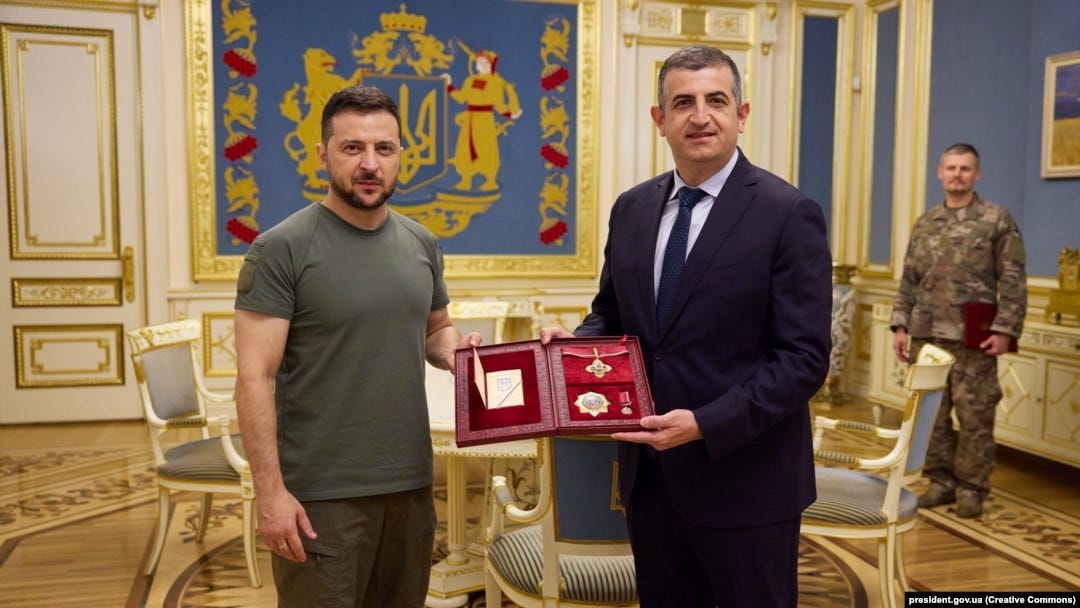
As the Turkish military footprint expands, so does its influence through what has been called ‘drone diplomacy’. However, while the Turkish state prefers to adopt a balancing strategy between nations to maintain the primacy of its interests and avoid entanglements, Baykar has developed a diplomatic portfolio of its own. Haluk, the eldest of the three Bayraktar brothers and the CEO and businessman in the company is primarily responsible for developing close relationships with UAV clients. In particular, Bayraktar has become a household name in Ukraine, where Baykar has unabashedly sided with the Ukrainians against Russia. This gives the Turkish state an added layer of plausible deniability when it chooses to use UAV exports – as a carrot or a stick.
The Bayraktar Complex
The Bayraktar family background and upbringing, Türkiye’s domestic political scene, geopolitical struggles, and the War on Terror have all shaped Baykar’s success. Crucially, this has also driven Selçuk’s quest to socially engineer a culture of industry and technological innovation in Türkiye. Profits from the success of Baykar have been ploughed into a range of strategic initiatives and foundations controlled by the Bayraktar family: The Bayraktar Complex.
The Complex consists of several programs, primarily organised through the Türkiye Technology Team (T3) Foundation. T3 runs the Teknofest program and the Takeoff startup summit, the largest in the Middle East. While T3 is Selçuk’s project, Haluk runs the defence industry organisation, SAHA. These efforts aim to actualise the Milli Teknoloji Hamlesi (National Technology Initiative), a doctrine formally adopted and promoted by Türkiye’s Ministry of Industry and Technology. Its foundational principles trace their intellectual lineage to Necmettin Erbakan. Central to this doctrine is the conviction that Türkiye must achieve full technological independence, prioritise high-value-added production to secure sustained prosperity, and cultivate a workforce defined by diligence and patriotism. This vision is encapsulated in its motto: A local and national, fully independent, prosperous Türkiye.
Teknofest (a portmanteau of technology and festival) is the flagship programme of the T3 foundation and hosts large-scale technology competitions. Initially launched in Türkiye’s major metropolitan centres, the event has since expanded to provincial cities and internationally, with editions held in Azerbaijan and Cyprus, and further global expansion planned. Teknofest operates year-long competitions across 58 primary and 138 secondary categories, spanning aviation, space technologies, autonomous systems, and artificial intelligence. These contests aim to equip younger generations with advanced technical skills while fostering a culture of innovation. Conducted in collaboration with Türkiye’s leading technology firms, they facilitate knowledge transfer between industry leaders and emerging talent.
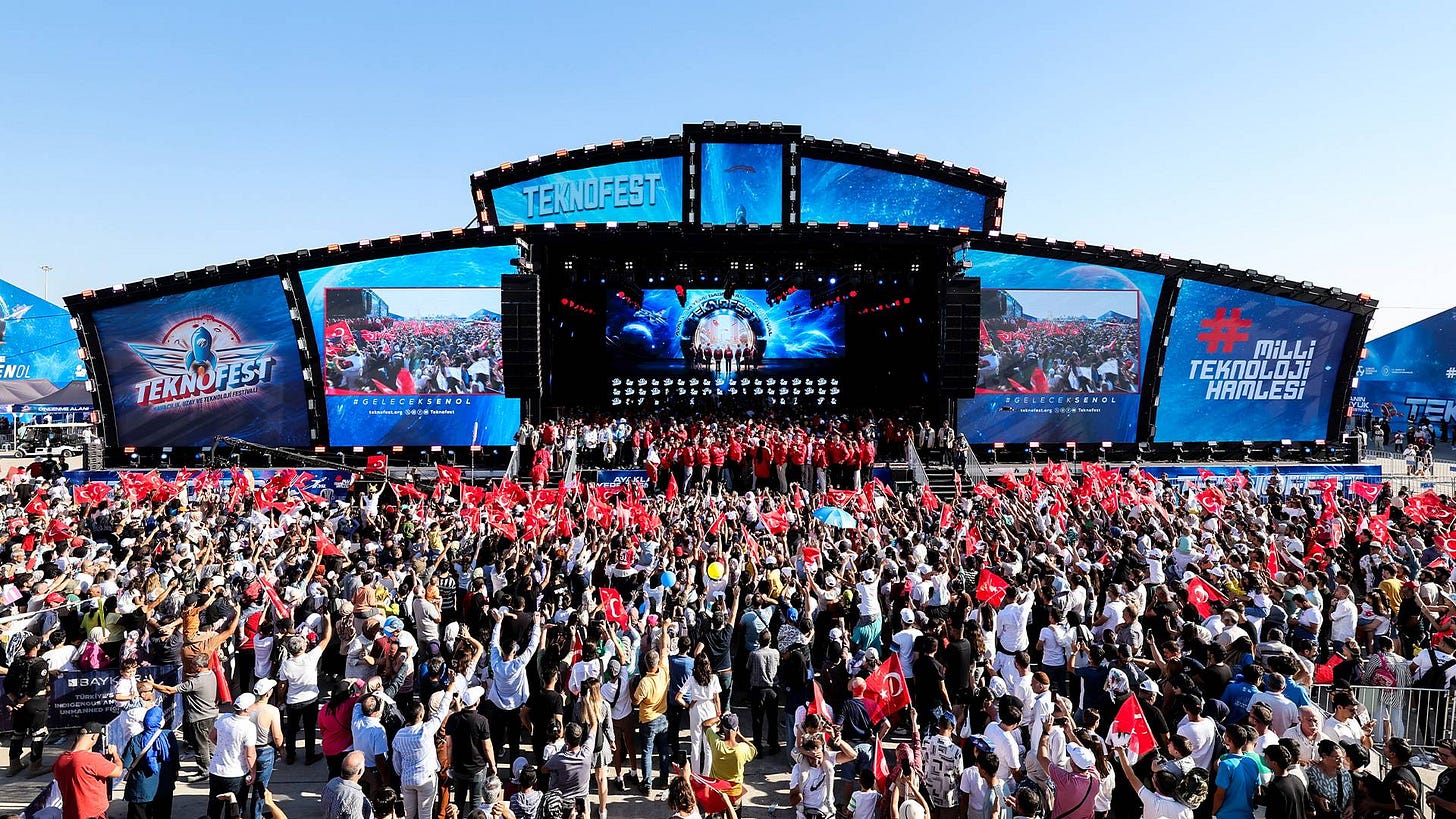
Beyond competitive events, Teknofest functions as a public exhibition, incorporating air shows, concerts, and educational programmes. It serves as a unique convergence point for policymakers, industry stakeholders, and the broader public, blending technological diplomacy with civilian engagement. Although primarily an entertainment-driven platform, it also showcases Türkiye’s military and industrial capabilities, reinforcing a sense of national technological prowess.
As articulated by Selçuk, Teknofest represents the nucleus of what he terms the "Deep Wave", a movement to cultivate a new generation of Turkish technology entrepreneurs. Initiatives such as One Child Touches an Aircraft introduce young children to foundational concepts of technology, while older participants engage in advanced projects, from rocketry to unmanned systems. Prior to Teknofest, public awareness of fields such as model rocketry was negligible, and civilian participation was virtually non-existent. The festival has not only popularised these disciplines but also normalised the aspiration for high-tech production among the youth.
For Teknofest competitors and university teams to translate their projects into commercial ventures, structured support mechanisms are essential. The start-up ecosystem, championed by the T3 foundation, plays a pivotal role. Under the leadership of İrem Bayraktar Aksakal, Vice President and Entrepreneurship Coordinator, the foundation has established accelerators, prototyping facilities, and funding programmes. The T3 Foundation Entrepreneurship Centre, alongside the Özdemir Bayraktar Prototyping Centre at Istanbul Technical University, provides incubation support for start-ups in hard-tech sectors such as space, maritime, and AI technologies.
Complementing these efforts is Take Off, the Middle East’s premier start-up summit, held annually in Istanbul. Unlike Teknofest’s broad public appeal, Take Off targets a professional audience, connecting entrepreneurs with investors and multinational firms.
The T3 Foundation’s educational initiatives extend to younger demographics through DENEYAP (Try&Make) and Bilim (Science) Workshops, which admit students via competitive examinations. These programmes, operational across Türkiye and in select international regions (including Africa, Central Asia, and the Balkans), emphasise hands-on learning in aviation, AI, and core sciences. The DENEYAP Card, a maker-space tool, further fosters a domestically rooted hacker culture among the youth.
A critical industrial pillar is SAHA (Savunma, Havacılık ve Uzay Kümelenmesi Derneği - Defence, Aviation, and Space Cluster), directed by Haluk. Functioning as a developmental body for Türkiye’s defence subcontractors, SAHA Istanbul addresses sectoral challenges through specialised training, executive education (including a tailored MBA programme), and networking platforms. The flagship SAHA Expo, held biennially under presidential patronage, ranks among Türkiye’s largest defence exhibitions.
The Bayraktars are not only interested in engineering. Their scope encompasses social sciences and the arts, as evidenced by the founding of institutions like the Culture and Civilisation Foundation (KÜME) and the Cansağlığı Foundation (focused on health sciences). Notably, the ecosystem thrives on volunteerism, with students and professionals contributing through both paid roles and unpaid participation.
All together, these initiatives are the trappings of a comprehensive ecosystem to socially engineer a culture of technological innovation, funded and coordinated by the Bayraktar Complex.
Building an Industrial Society
The Bayraktar Complex is an incubator using the Bayraktar family’s upbringing, cultural milieu, and technological success as a blueprint for social engineering in Türkiye. But to what end?
Only the creation of an industrialised society can achieve the mission laid out in the National Technology Initiative: to achieve full technological independence, prioritise high-value-added production to secure sustained prosperity, and cultivate a workforce defined by diligence and patriotism.
Industrialisation is not a half-hearted affair. All successful examples of industrialisation have been the transformation of social and political structures, laws, and norms to create a society capable of undertaking the rigours of industrial organisation. Industrial production is merely the end result of this process. Meiji Japan was the first non-Western power to successfully undergo the process of creating an industrial society. Arguably, that other East Asian countries like South Korea, Taiwan, Singapore, and China could also industrialise is because Japan went through it first, indigenising and proliferating industrial knowledge, organisation, and production as an East Asian society.
On the other hand, all failed attempts at industrialisation have been to reduce this process to mere industrial policy. Industrialisation is not an economic process to be grafted onto existing socio-political structures. It is, instead, the wholesale transformation of these structures, right down to their very foundations, to create an industrial society. Türkiye and the wider region lack such an ‘anchor state’ for this process, much like the role Japan played for East Asia. Ideologues like Erbakan envisioned Türkiye to play this role for the region and the wider Muslim world.
Türkiye itself has made several failed attempts at industrialisation in the century since the Republic’s founding, largely because the process was adopted in a half-hearted manner: serious about production, but unwilling to commit to the fundamental transformation of Turkish society. Figures like Türkiye’s founder, Mustafa Kemal Atatürk, the industrialist Nuri Demirağ, Prime Minister (and later President) Turgut Özal, and Necmettin Erbakan all attempted – and failed – to industrialise Türkiye. Nonetheless, their efforts have left a legacy that has brought Türkiye closer than ever before.
The Bayraktar Complex indicates that some notion of this problem exists in the minds of its founders. Raised in the cultural milieu of Türkiye’s ‘Islamic industrialist’ current pioneered by former leaders like Necmettin Erbakan, and given a tinkerer’s education in the Baykar workshops of the Bayraktar patriarch, Özdemir, Selçuk, and his brothers have a remarkably practical approach. This has been aided by the full support given to the Bayraktars by President Erdoğan, who has aspired to finally fulfil the vision of an industrialised and fully sovereign Türkiye first set out by his predecessors.
However, a rapid cultural shift carries latent risks, including the potential for politicisation or misappropriation by actors seeking legitimacy rather than genuine advancement. Rentierism is another endemic problem, whereby parasitic elites encourage economic activity insofar as it reaches a level where they can reliably extract wealth. This then prevents the reinvestment of profit back into industry to climb the value chain. Demographic pressure, with a rapidly collapsing fertility rate and an ageing population, also poses long-term existential challenges, as the process of industrialisation depends on a large and youthful labour population. Technology and youth workshops alone cannot solve any of these problems.
Whether or not the Bayraktar Complex succeeds in its mission to reshape Türkiye’s culture, and downstream the economy itself, depends on how seriously the Bayraktar family and their network take the process of creating an industrial society. In that, they have plenty of supporters – and even more enemies.




